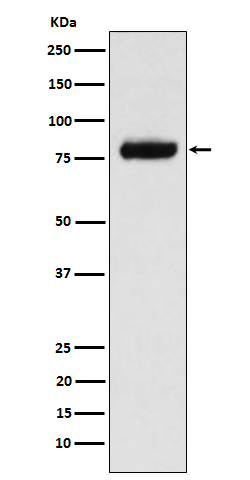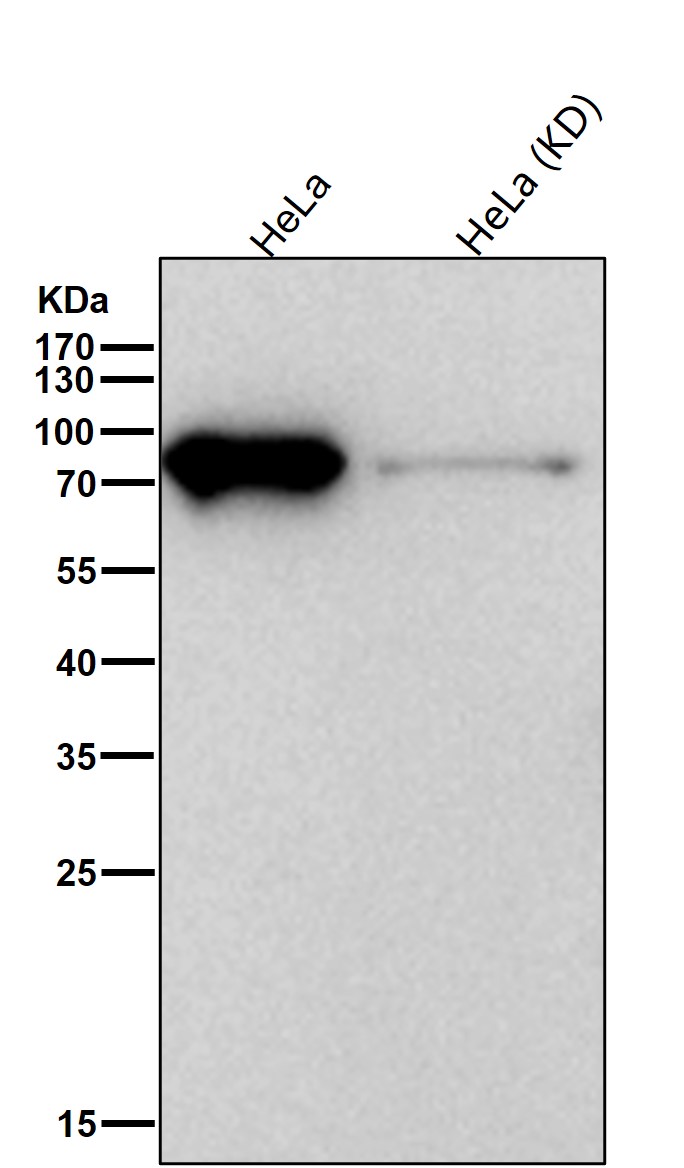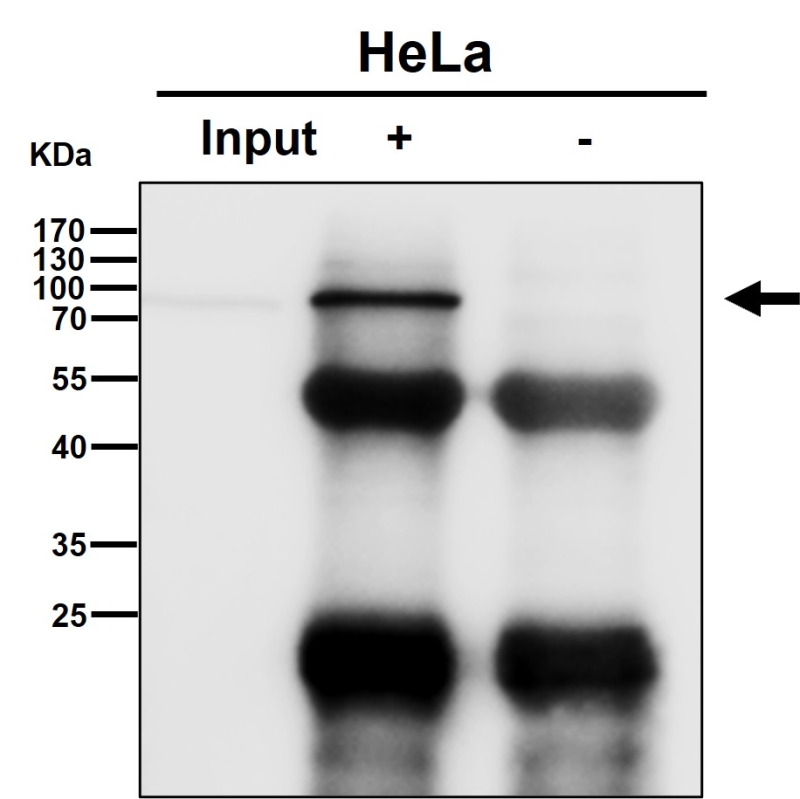


| WB | 咨询技术 | Human,Mouse,Rat |
| IF | 1/20-1/50 | Human,Mouse,Rat |
| IHC | IHC:1/100-1/200;IHF:1/50-1/200 | Human,Mouse,Rat |
| ICC | 1/50-1/200 | Human,Mouse,Rat |
| FCM | 咨询技术 | Human,Mouse,Rat |
| Elisa | 咨询技术 | Human,Mouse,Rat |
| Aliases | Glycerophosphatase; PLA2P; Plaa; PLAP;;PLAP |
| WB Predicted band size | Calculated MW: 87 kDa ; Observed MW: 75 kDa |
| Host/Isotype | Rabbit IgG |
| Antibody Type | Primary antibody |
| Storage | Store at 4°C short term. Aliquot and store at -20°C long term. Avoid freeze/thaw cycles. |
| Species Reactivity | Human |
| Immunogen | A synthesized peptide derived from human PLAP |
| Formulation | Purified antibody in PBS with 0.05% sodium azide,0.05% BSA and 50% glycerol. |
+ +
以下为3篇关于PLAP抗体的参考文献摘要概括:
---
1. **文献名称**: *Immunohistochemical localization of placental alkaline phosphatase in primary ovarian neoplasms*
**作者**: Kurman RJ, et al.
**摘要**: 研究通过免疫组化分析PLAP在卵巢肿瘤中的表达,发现其在生殖细胞肿瘤(如无性细胞瘤)中高表达,可作为鉴别诊断的生物标志物,尤其在区分卵巢癌亚型中具有临床价值。
---
2. **文献名称**: *PLAP as a biomarker for testicular germ cell tumors: A comparative study with other markers*
**作者**: Ulbright TM, et al.
**摘要**: 比较PLAP与其他标志物(如AFP、hCG)在睾丸生殖细胞肿瘤中的敏感性及特异性,证实PLAP抗体在精原细胞瘤中的高特异性,提出其在病理诊断和分期中的辅助作用。
---
3. **文献名称**: *Technical evaluation of PLAP antibody in modern immunohistochemistry platforms*
**作者**: Shi M, et al.
**摘要**: 评估不同商业化PLAP抗体在自动化免疫组化平台上的表现,优化染色条件以提高检测灵敏度,强调标准化操作对临床诊断结果一致性的重要性。
---
如有需要具体文献来源(期刊卷期等),可进一步补充说明。
Placental alkaline phosphatase (PLAP) is a heat-stable isoenzyme belonging to the alkaline phosphatase family, primarily expressed in the placenta during pregnancy. It plays a role in nutrient absorption and cellular differentiation during embryogenesis. Structurally, PLAP is a glycosylphosphatidylinositol (GPI)-anchored membrane protein encoded by the ALPP gene on chromosome 2. While its expression diminishes in most adult tissues, trace levels may persist in the cervix, testes, and thymus.
Clinically, PLAP serves as a tumor marker due to its ectopic expression in various malignancies. It is notably elevated in germ cell tumors (e.g., seminomas, dysgerminomas) and certain carcinomas, including ovarian, gastrointestinal, and lung cancers. PLAP antibodies are widely employed in immunohistochemistry (IHC) to detect PLAP in tissue samples, aiding in differential diagnosis and tumor classification. However, its specificity is limited as PLAP may also be expressed in non-neoplastic conditions like inflammatory bowel disease.
Research continues to explore PLAP's role in cancer biology and its potential as a therapeutic target. Recent studies suggest its involvement in cell adhesion and drug resistance mechanisms. Despite advances, distinguishing PLAP from other alkaline phosphatase isoenzymes (e.g., intestinal or tissue-nonspecific types) remains crucial for accurate diagnostic interpretation.
×